How to Keep Water From Freezing While Camping - Short Read on Some Proven Strategies
Hate thawing out your water before you can even take a sip when you're in the great outdoors and don't have access to a microwave or hot water? Don't worry – there are several simple and effective ways to keep your water from freezing while camping, even in the coldest of temperatures.
Are you tired of waking up to frozen water bottles on your camping trips?
Don't let the cold ruin your outdoor adventures! There are several proven strategies you can use to keep your water from freezing while camping.
Imagine being able to easily access hydration during your hike, without having to worry about breaking the bottle to get a drink. Or being able to enjoy a warm cup of tea in your tent without having to melt ice first.
Keep reading to discover the top strategies for keeping your water from freezing while camping, so you can stay hydrated and comfortable on your next outdoor excursion.
Pick Your Campsite Thoughtfully
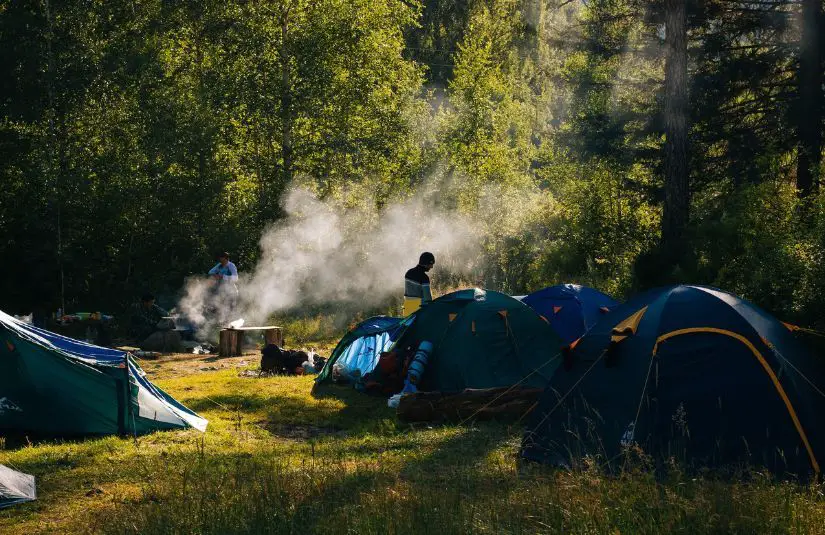
Make sure that your campsite is in an area protected from wind, rain, and freezing temperatures. You should look for a location that has some natural cover where strong winds cannot reach or penetrate through your tents and equipment.
Also, make sure there are no areas of low-lying fog or mist that can cause condensation to form on the surface of your gear and containers.
Keeping water away from open air as much as possible will help to keep it warm overnight and decrease the risk of it turning into a block of ice the next morning.
Don't leave Your Water Containers Outside
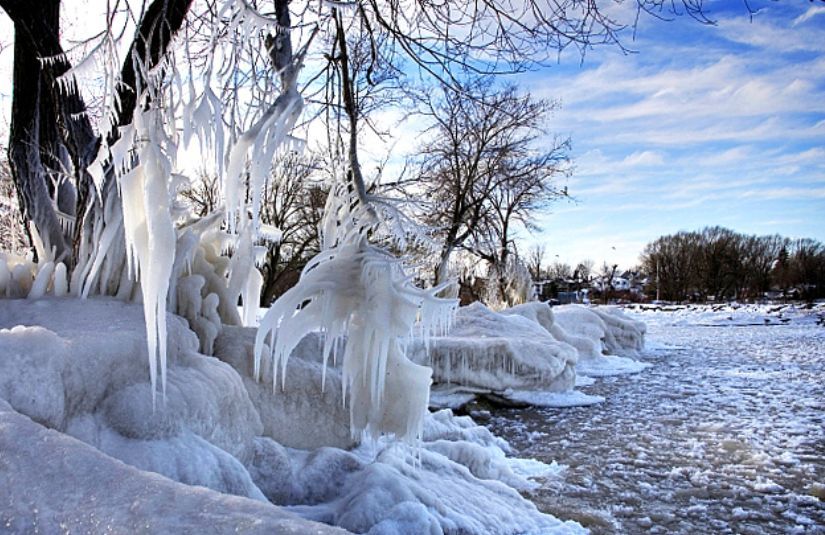
When camping in freezing temperatures, it's important to keep your water tanks away from the night air and securely stored inside your tent or insulating material. If left exposed to cold temperatures for too long, your water supply can quickly freeze over during the early morning hours.
Make sure to store your containers inside your tent and if possible in a sleeping bag or other insulating material. This will help keep them warm and protect them from the icy temperatures outside.
This will help retain the warmth of the water and significantly reduce the chances of it becoming frozen overnight so that you have access to fresh water during your camping trip without worrying about it freezing over!
Invest in a Quality Gear for Winter
Investing in a quality sleeping bag and tent is one of the best ways to keep your water from freezing while camping. A good sleeping bag will help to insulate you from the cold ground, while a sturdy tent can provide additional insulation against the elements. If you're camping in extreme weather conditions, consider purchasing an insulated tent or even renting a heated tent if available. Also, bring wood stoves or tent heaters to keep the inside of your tent cozy.
Pack extra insulation
Consider bringing a closed-cell foam sleeping pad, which can provide an additional layer of insulation between you and the cold ground. Whether you are choosing air mattresses or sleeping pads, make sure they have proper R-rating to keep you comfortable. You can also bring blankets or sleeping bags to wrap around your water containers, as this will help keep them warm and prevent the water from freezing.
Insulate your water bottles
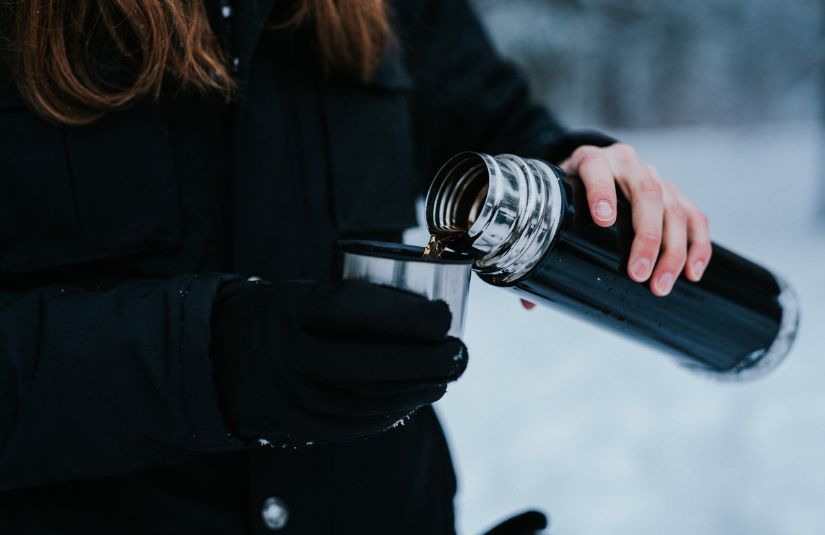
One of the easiest ways to keep your water from freezing is by using insulated water bottles. These bottles are designed with double-walled construction and a vacuum seal, which helps to keep your water at a consistent temperature. Just fill up your insulated water bottle with hot water before you go to bed, and it should stay thawed throughout the night.
In addition, bringing a thermos filled with boiling hot water can keep your food and drinks warm throughout the day.
Use a chemical heat pack
Another option is to use a chemical heat pack, like a hand warmer, to keep your water from freezing. Simply place the heat pack in your water bottle or hydration pack, and it will release heat over time to help keep the water at a consistent temperature. Just be sure to follow the manufacturer's instructions for safe use.
Some other Tips
If You Use a hydration pack
If you prefer to use a hydration pack, there are a few things you can do to keep the water from freezing. First, try filling the pack with hot water before you go to bed. This will help to warm up the reservoir and prevent the water from freezing. You can also try storing the pack close to your body, as your body heat will help to keep the water from freezing.
If You Use a portable water filter
If you're using a portable water filter to purify your water while camping, you can try keeping the filter close to your body to help prevent the water from freezing. Alternatively, you can use a small, insulated container to store your water while it's being filtered, which can help keep it from freezing as well.
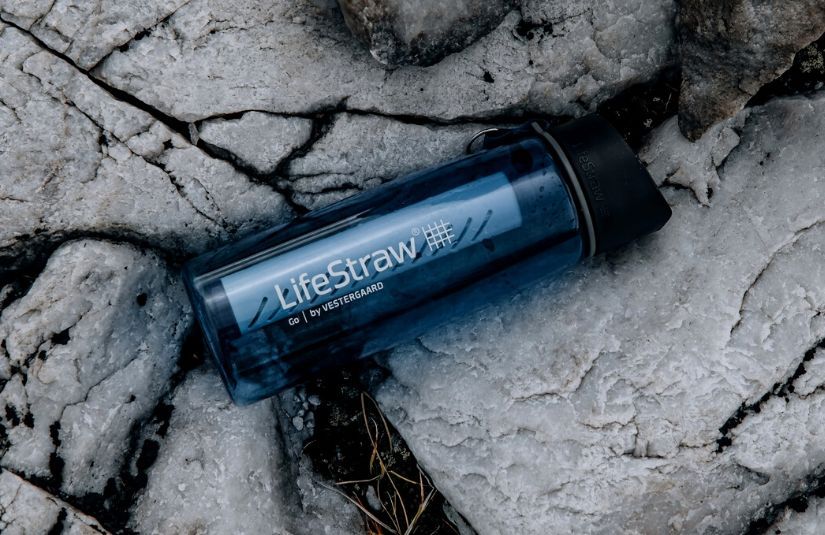
Bonus Tip - How to Keep RV Water Lines From Freezing While Camping
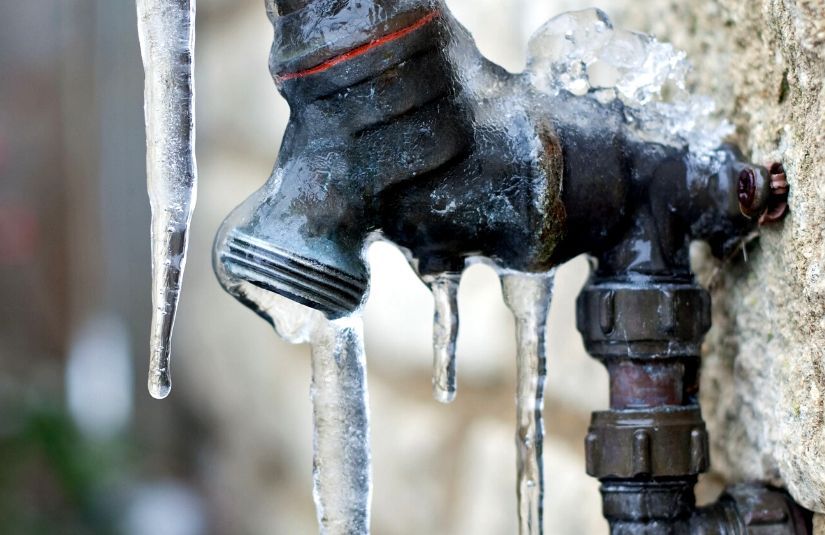
There are several ways to prevent your RV's water lines from freezing while camping:
- Insulate the water lines: You can use special water line insulation or wrap the lines with insulation material like foam pipe insulation. This helps to keep the lines warm and prevents freezing.
- Use a heated hose: A heated hose is specifically designed to prevent freezing and can be plugged into a standard outlet to provide heat. You can use a hose heater to keep the water flowing and prevent it from freezing.
- Keep the RV warm: Make sure to keep your RV warm enough, especially at night. You can use a space heater or leave a cabinet door open to allow heat to circulate around the water lines.
- Keep the water tank full and dripping: The fluidity of water prevents it from becoming solidified more than stillness does. To prevent the temperature of your tank from dipping below freezing, permit it to move slightly by letting droplets trickle out.
- Drain the water lines: Before you leave the RV, make sure to drain the water lines to prevent them from freezing and damaging your pipes.
- Use RV antifreeze: You can use RV antifreeze in your water system to prevent freezing. Just make sure to use a non-toxic antifreeze specifically designed for RVs.
By following these tips, you can help to prevent your RV's water lines from freezing while camping.
Final Words
With a little planning and some basic supplies, it's possible to keep your water from freezing while camping. Just choose the method that works best for your situation and enjoy a hydrated and comfortable trip!
And to make sure you are hydrated properly, bring sufficient water for your trip. Check out our articles for all the best camping gear that you need to solve all your hydration problems.

